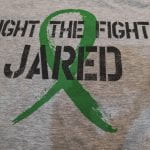
By Martanna Broom
Northwest University Wellness Center’s dietitian, Amy Reuter, brought her expertise to the Last Lecture series in Perks lounge. The monthly event gives a member of the staff, faculty or student body an opportunity to impart some of their wisdom to the students of NU as if it was their last chance to do so.
Reuter posed three questions for students to ask themselves during times of transition: “Who are you?” “Who do you want to become?” and “How are you helping your body prepare for your journey?”
Reuter asked these questions in terms of foods and beverages. She referred to the old saying “You are what you eat,” and reiterated the importance of food for energy and overall performance. Reuter reminded students they are made in the image of God, and to take care of oneself to be “the best you that you can be.”
“It’s important to fuel this body that you have,” Reuter said.
She shared what she called her “food journey” with the audience, and encouraged students to dig into their food histories as well. She said that not everyone sees food the same way and those differences are often a reflection of the history one has with food.
Student McKenna Smith said she appreciated Reuter’s story and emphasis on how important nutrition is.
“I really liked how she explained how we all have food journeys which made me reflect on my growing up and how my food journey has affected my life… food is more than just food; it’s sometimes a reflection of your emotions and what you’re going through. What you’re putting in your body matters,” Smith said.
Reuter provided questions which allowed students to assess their relationship with food currently and how they might make some changes if needed, offering guidelines to consider when deciding what to eat.
Reuter encouraged students to eat real, unprocessed foods without all the added sugar, and to tune into hunger cues, eat a variety of foods, and venture out and embrace the local cuisine.
Reuter also emphasized the importance of the social aspect of eating. She encouraged students to share meals with others, speaking about the benefits for a person to eat socially, sharing laughter and friendship, rather than eating alone.
In closing, Reuter shared that it is important to remember that one meal is not going to make or break one’s health. Eating one healthy meal doesn’t make a person healthy just as eating one unhealthy meal doesn’t make one unhealthy. It is the patterns formed in one’s food journey, Reuter said, that truly matter.
Reuter ended the lecture by reading 1 Corinthians 10:31.
“So whether you eat or drink or whatever you do, do it all for the glory of God.”







